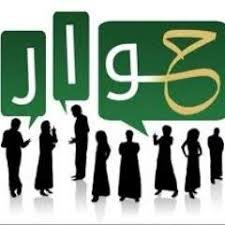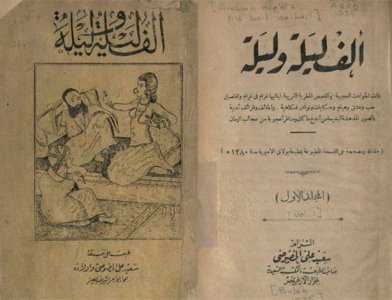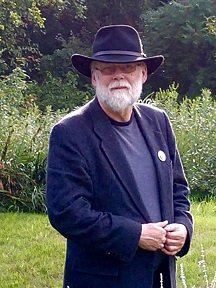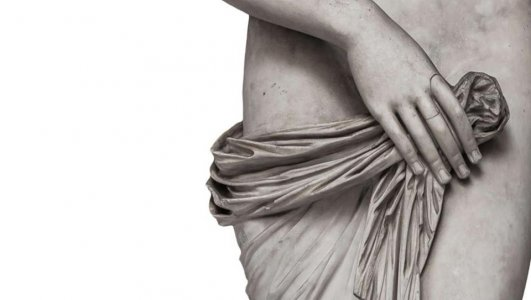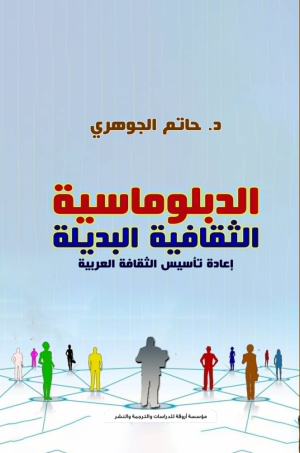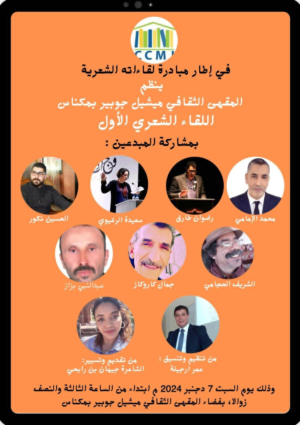الإتحادُ الوطنيُّ لشبابِ وطلبةِ إرتريا يدرِّسُ اللغةَ العربيَّة//ሃማመተኤ ስልጠና ቀንቀ ዓረብ ይህብ
الإتحادُ الوطنيُّ لِشَبابِ وطلبةِ إرتريا
بدأ الإتحادُ الوطنيُّ لشبابِ وطلبةِ إرتريا ومنذُ شهر نوفمبر 2020 بتدريسِ اللغةِ العربيةِ ,, مع مراعاة متطلباتِ التعاملِ مع مرضِ كورونا ,, حيثُ ستستمرُ الدَّورة تسعة أشهرٍ ,, وقد اجرى موقع ” الشَّبابِ ” الإلكترونيِّ لقاء مع منسِّق الدِّراسة الأستاذ / أحمد عمر شيخ :
……………………
>* ماهيَ أهمية تعليم اللغةِ العربيَّة بالنسبةِ للشَّعبِ الإرتري وخصوصاً شريحة الشَّبابْ ؟.
>>* تُعدُّ اللغةُ العربيَّةُ إحدى ستِّ لغاتٍ معتمدة في منظمةِ الأمم المتحدة ,, وهيَ اللغةُ الأم لقرابة النصف مليار من شعوبِ الدُّولِ العربيَّة ,, وبحكمِ موقع ” إرتريا الجغرافيِّ فهيَ تقعُ ضمن محيط الناطقين بهذه اللغة ,, وتجمع ” إرتريا ” بهذه الشُّعوب عدا الجغرافيا أواصرُ التداخل التأريخيّ والإجتماعيِّ ,, لذا تحظى اللغةُ العربيَّةُ باهتمامٍ كبيرٍ في ” إرتريا ” ,, والشَّبابُ همْ عمادُ برامجِ البناءِ الوطنيِّ ويقومون بالإسهامِ الإيجابيِّ في كلِّ المجالاتِ ,, وتعزيز لحمة الهويَّة والدِّفاع عن ” المشروع الوطنيِّ ” ويشكِّلونَ شريحة واسعة وهامة من الشَّعبِ الإرتريّ ,, لذا يتمُّ التركيز عليهم في مثلِ هذه البرامج التأهيليَّة وغيرها.
>* ما هيَ خلفية تعليم اللغة العربيَّة في ” إرتريا ” ؟.
>>* عَمِلتْ ” الجبهةُ الشَّعبيَّة لتحرير إرتريا ” في استراتيجيتها التعليميَّة على تكريسِ برامجُ تعليمِ اللغةِ العربيَّة مثلها مثل باقيْ اللغاتِ الوطنيَّة التحرير منذ فترة النضالِ التحرُّريِ ,, وبعد الإستقلال تمَّ تدريسها للناطقين بها حتى الفصل الخامس ,, وكمادة تُدرس للبقيَّة في كلِّ المدارس وتمَّ وضعها ضمن المنهج الوطنيِّ عبر وزارةِ التعليمِ ,, وكذا من خلال بعض المبادراتِ الخاصة المحدودة.
>* هلْ يمكنْ أنّْ تضيءَ لنا حولَ هذه المدرسة التيْ تقامُ تحتَ مظلة ” الإتحاد الوطنيّ لشَّبابِ وطلبة إرتريا ” ؟! ماهيَ أهميتها ؟! تنظيمها ؟! وماهيَ النتائج التيْ يرجوها ” الإتحادُ ” مِنْ هذا التأهيلْ ؟.
>>* إنَّ هذا التأهيل لتعلُّمِ ” اللغةِ العربيَّة ” الذيْ يتمُّ عبر مبادرةِ ” الإتحادِ الوطنيِّ لشَّبابِ وطلبةِ إرتريا ” لغير الناطقين بالعربيَّةِ للكبار هو الأولُ مِنْ نوعهِ في البلادِ ,, وتمَّ الشُّروع بدايةً عبر فصلين يقومُ بالتدريسِ فيها الأستاذان : محمود عبدالله ( أبوكفاح ) وقاسم أحمد ,, وهذا هو الشَّهرُ الثالث منذُ أنّْ بدأ التأهيلُ ويصلُ أعدادُ الطلبة في كلِّ فصل الـ40 طالباً وطالبة ,, لذا يأملُ ” الإتحادُ ” مِنْ هذه ” التأهيل ” أنّْ يصلَ الدَّارسون والدَّارسات إلى مستوى يمكنهمْ / يمكنهنَّ منَ ” التواصل ” وتحصيلِ أبجدياتِ القراءة والكتابة.
>* وحولَ مدى استمراريَّة هذه الدِّراسة ؟.
>>* إنَّ هذه ” المبادرة ” التيْ يقومُ بها ” الإتحادُ الوطنيُّ لشَّبابِ وطلبةِ إرتريا ” تطمحُ في الفترةِ القادمةِ إلى عقدِ دوراتٍ مماثلةٍ لرفع مستوياتِ التعلُّمِ باللغةِ العربيَّةِ في كلِّ انحاءِ الوطنْ وعبر مختلفِ اقاليمِ إرتريا .
>* مَنْ هيَ الشريحة التيْ تتلقى هذه الدِّراسة ؟.
>>* الدّارسون والدّارسات هّمْ من الجنسين ذكوراً وإناثاً ومِنْ مختلفِ الشرائحِ العمريَّة مِنْ موظفيْ ” الجبهة الشعبيَّة للديمقراطيَّة والعدالة ” ومن ” الإتحادِ الوطنيِّ لعمال إرتريا ” و” الاتحادِ الوطنيِّ للمرأة الإرتريَّة ” و” الإتحادُ الوطنيُّ لشَّبابِ وطلبةِ إرتريا ” وكلُّ الوزاراتِ مثل وزارة الإعلام ووزارة الشؤونِ الخارجيَّة ووزارة التعليمِ ووزارة السِّياحة ووزارة الصَّحة ومفوضيَّة الثقافة والرِّياضة .. إلخْ ,, وكذا ” الشُّرطة الإرتريَّة ” وغيرها مِنْ قطاعاتْ .
> * كيفَ تمضيْ ” الدِّراسة ” مع وجود ” مرض كورونا / كوفيد19 “؟.
>>* نعملُ على التطبيقِ الدقيقِ لتعليماتِ ” اللجنة الوطنيَّة لمكافحةِ مرضِ كورونا /كوفيد19 ” ,, حيثُ تمَّ توزيعُ ” الكمامة ” على الطلبةِ ,, وكذا ” المعقماتِ ” ,, وتحقيق “التباعد الإجتماعيْ” أثناء الدخول والخروج ,, وفي القاعة الدِّراسيَّة .
> * ما هو المستوى الدِّراسي لهذه الدورة ؟! وكَمْ هيَ المُدَّة الزَّمنيَّة لهذا المستوى ؟.
>> * الدِّراسة هيَ للمستوى الإبتدائيِّ للكبار ,, وتستمرُ على مدى تسعة أشهرٍ ,, ويتمُّ العملُ على تطويرها درجة بدرجة إلى أنّْ تصلَ إلى المستوى المأمولِ منها .
> * ماهو المنهجُ الذي تسترشدون به ؟! وماهيَ تقاطعاته مع المنهج الوطنيِّ ؟.
>>* نعملُ على صياغةِ منهجٍ للكبار يتوافق مع ثقافاتنا ومجتمعنا الإرتريَّ وهويتنا وبالتفاهمٍ مع معلميّ الفصلين المذكورين وتطبيقه على أرضِ الواقعِ ,, كما قمنا بالتشاور في بداياتِ انطلاقنا في هذا العمل مع مسؤول قسم التعليم العام في وزارة التعليم السيد / موسى حسين نائب وبعض القدراتِ في هذه اللغة.
* أيُّ ” لهجةٍ ” تستخدمونَ في التدريسْ ؟.
*نستخدمُ اللغة العربيَّة الفصحى المخففة ,, ليتمكنَ الدَّارس مِنْ ” التواصل ” بها ,, والكتابة والقراءة وفهم اللغة العربيَّة والإفادة منها بما يعودُ عليه وعلى عمله وبلاده بالمنفعة.
=======================
Interviews
NUEYS launches Arabic lessons
The National Union of Eritrean Youth and Students has launched intensive vocational training on several capacities including training on Arab Language. The training which has been underway since November 2020, takes in consideration the hazards and prevention guidelines of Covid-19. It is also scheduled to run for nine months. For more information on regards to the course of Arabic Language, Eriyouth.org the official webpage of the Union, has spoken to the administrator of the course, Mr. Ahmed Omer Sheikh as follows:
Q: What is the importance of Arabic Language to the Eritrean community? And also, specifically, to the youth of Eritrea.
A: Arabic is one of the six languages used in the United Nations. Also, it is the mother tongue of more than half a billion people worldwide. The geographic location of our country lies in area that neighbors Arabic speaking communities and countries. The historic and cultural ties we as a people have with our Arabic speaking neighbors is naturally strong as it has been thriving for centuries. Given such circumstances, it is important for our youth to be equipped with enough knowledge of the language, to foster and perpetuate our relations with our neighbors.
Arabic has served as a communication amongst our communities and foreigners for a long time. During the armed struggle, however, EPLF set the grounds for the language to be institutionalized along the other nine ethic languages of Eritrea. As part of fortifying the national identity, EPLF, has worked on augmenting all ethnic languages and also Arabic. After independence, all schools introduced lessons of native and Arabic languages up until fifth grade to be mandatory. In junior school students learn in English. That is the policy in the Eritrean educational system.
Q: What can you tell us about the courses that NUEYS is now offering?
A: The ongoing course which NUEYS has recently launched is the most organized and the biggest so far. We have two experts of the language, Mr. Mohamed Abdulla and Mr. Qaseem Ahmad, giving the courses in two shifts. Each shift is participated by forty learners. The courses are being held while accommodating Covid-19 prevention guidelines. Despite having started late November last year, it was soon decided to momentarily stop the courses given the spread of the virus. Lessons, were later resumed after the second easing of the lockdown. Our aim is to provide the students with basic communication skills, both on spoken and written Arabic.
Q: Which curriculum is the course based on?
A: Prior to its launch, we conducted several meetings in which, along the instructors, we designed a draft that puts inconsideration several factors. So now we have a solid syllabus and we’re open for further discussions to enhance it.
Q: Which dialect of Arabic does the course offer?
A: The internationally recognized Arabic. At the end of the nine months our learners should be able to write, speak and communicate in Arabic without any problems.
Q: What about its continuity?
A: Things have been on and off because of the pandemic, however, the union has already planned to expand such courses throughout the country so that more people interested in the language can enroll and learn some Arabic.
Q: Who can enroll in the course?
A: Anyone interested, but as this is the just the start of a bigger vision, for now, partakers of the course are members of several offices and branches of PFDJ, The National Union of Eritrean Workers, the National Union of Eritrean Women, the National Union of Eritrean Youth and Students as well as employees of several ministries such as Ministries of Information, Health, Tourism, Foreign Affairs, Eritrean Police and the Commission of Culture and Sports. And we are expecting more people from different organizations and offices as we plan to expand the course.
Q: Best wishes!
A: Shu’kran.
Translated by Billion Temesghen
NUEYS launches Arabic lessons
 eriyouth.org
eriyouth.org
